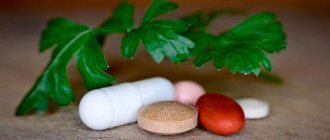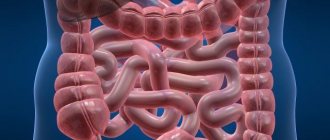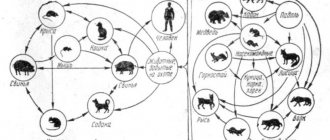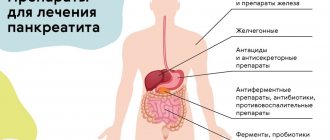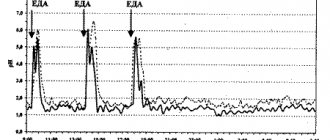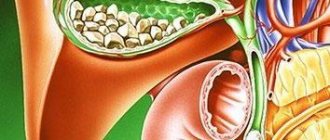Diarrhea is an unpleasant and life-threatening condition. And, in general, sad! The stomach aches and sometimes hurts, the mood is at zero, delicious food causes an attack of melancholy, and the toilet becomes your best friend. It's good if this is a one-time occurrence! And if the process does not stop, intensifies, blood inclusions appear, or, conversely, water appears instead of feces, then you need to pull yourself together and consult a doctor.
Diarrhea - some information about your own bowel movements
Diarrhea is a pathological condition of the body
Normally, an adult excretes from 100 to 300 g of feces per day. It all depends on the amount of food consumed and the coarse dietary fiber in it. The frequency of bowel movements is an individual matter, but if you go to the toilet more than 3 times a day, then you have diarrhea.
If the gastrointestinal tract system operates normally, then the amount of liquid in the stool is about 60%. And nothing bothers the person. If the balance is disturbed - the liquid in the feces reaches 90% - diarrhea begins. Even diarrhea in medical practice is subject to classification. Therefore, diarrhea can be of the following types:
- Secretory – so-called “water diarrhea”
- Osmolar - frequent and copious stools with pieces of undigested food
- Hyperkinetic – disturbance of intestinal motility
- Hypokinetic – decreased intestinal motility
- Exudative - disorders of the intestinal lining due to the inflammatory process - ulcers, dysentery, and so on. The stools are purulent and mixed with blood.
Treatment
Diarrhea is not a disease. This is just one of the symptoms of some pathological process occurring in the body. Only a doctor can determine the true cause of diarrhea and select the necessary treatment. The patient must understand this and in case of prolonged stool disorder, be sure to seek medical help.
For symptomatic treatment of diarrhea, doctors recommend diet and drug therapy1,3.
Diet
Diet therapy for diarrhea is aimed at inhibiting intestinal motor activity and normalizing the absorption of water and electrolytes1. Food should be as gentle as possible in composition and properties. It is recommended to exclude products that can mechanically or chemically irritate the gastrointestinal tract, cause fermentation and rotting: raw vegetables, whole grain flour products, coarse cereals, dairy products, prunes, dried apricots and plums, spices and seasonings, smoked meats and marinades. All dishes need to be steamed, boiled or stewed, chopped and ground.
It is extremely important that the diet fully covers the body’s needs for basic nutrients, vitamins and microelements. At the same time, the amount of protein is increased by approximately 30%, while carbohydrates and fats remain within the physiological norm3.
In order not to overload the gastrointestinal tract, meals should be divided - at least 5-6 times a day3.
If you are intolerant to certain food components, your doctor will recommend an elimination diet. For example, in case of lactase deficiency, it is recommended to exclude dairy products and products containing hidden lactose from the diet: bread, some sausages, seasonings, semi-finished products, etc.3.
Top
Drug therapy
Regardless of the cause of diarrhea, treatment may include the following medications as prescribed by your doctor:
- Enterosorbents are drugs whose active components are capable of binding water, various toxins and gases in the intestines and thereby contribute to the normalization of stool3.
- Probiotics and prebiotics that help restore healthy intestinal microflora.
- Enzyme preparations that compensate for the lack of the body’s own enzymes and thus improve digestion processes.
- Antidiarrheal drugs are medications whose action is aimed at regulating the mechanisms involved in the development of diarrhea.
Doctors may recommend loperamide preparations1,3 such as IMODIUM® Express6 as antidiarrheal agents. Loperamide helps normalize intestinal motility and the absorption of water and electrolytes6. Due to this, the stool becomes denser and stools become less frequent6.
IMODIUM® Express is approved for use by adults and children over 6 years of age6. The drug begins to act within an hour7, thereby helping to cope with the problem of diarrhea.
Top
The information in this article is for reference only and does not replace professional advice from a doctor. To make a diagnosis and prescribe treatment, consult a qualified specialist.
Literature
- Parfenov A.I. Diarrhea. // Regular issues of "RMZh" No. 7 - 1998 - Page. 6.
- Samorodskaya I.V. Recommendations for identifying the causes of chronic diarrhea in adults: British Society of Gastroenterology, 2022 - URL: https://glavterapevt.ru
- I. D. Loranskaya. Diarrhea in diseases of the digestive system // Attending physician. – 2007. – No. 6.
- E. B. Grishchenko. Irritable bowel syndrome in the practice of a general practitioner. // Medical advice. - 2012. - No. 9. — Page 63-67.
- D. P. Petrov. Irritable bowel syndrome // Consilium Medicum. 2009; 8: 40-43.
- Instructions for use of the drug IMODIUM® Express.
- A study by Ameri et al. "A multicenter, double-blind study: a comparison of the effectiveness of loperamide in acute diarrhea with two popular antidiarrheal agents and placebo," 1975.
Top
Secretory diarrhea in more detail
The mechanism of development of this type of gastrointestinal disorder is as follows:
- Increased movement of electrolytes into the intestinal lumen
- Electrolytes pull water with them, and watery diarrhea begins
Reasons for the development of pathology:
- Infection – foodborne illnesses, cholera, staphylococcus, some strains of E. coli, bacteria of the species Yersinia enterocolitica
- Damage from toxic substances - arsenic, phosphorus compounds, insecticides
- Genetic diseases - folic acid malabsorption
- Some cancers - pancreatic tumors, gastrinoma, medullary thyroid cancer
- Taking certain laxatives - castor oil, buckthorn bark, rhubarb
With this type of diarrhea, all pathological processes are concentrated in the small intestine.
Diarrhea is bowel movements more than three times a day with the release of liquid stool. The water content in the stool reaches 60-90%.
Diarrhea may be acute if its duration does not exceed 14 days. Diarrhea that lasts more than two weeks is considered chronic.
Acute diarrhea is often caused by various pathogenic microorganisms (viruses, bacteria, pathogens of parasitic infections). One of the causes of chronic diarrhea may be intestinal diseases (for example, ulcerative colitis, some types of intestinal tumors).
With frequent watery stools, significant amounts of fluid and electrolytes are lost, which are necessary for the normal functioning of the body. Dehydration is especially dangerous for children and the elderly.
Treatment involves treating the causes of diarrhea and replacing fluids and electrolytes. In severe cases, it may be necessary to restore the body's water and electrolyte balance through intravenous administration of solutions.
Synonyms Russian
Diarrhea.
English synonyms
Diarrhea.
Symptoms
- Frequent loose stools.
- Abdominal pain (possibly crampy in nature).
- Bloating.
- Temperature increase.
- Blood in the stool.
- Mucus in the stool.
General information about the disease
Diarrhea - bowel movement with the release of watery stools, as well as large stools weighing more than 200-300 grams per day.
The average person consumes approximately 2 liters of water every day. About 7 more liters of liquid are released into the intestinal lumen as part of digestive secretions (stomach juice, bile and others). The total amount of fluid that enters the intestines is 9-10 liters per day. 99% is reabsorbed (mainly in the small intestine).
In the large intestine, feces are formed and final absorption of water and electrolytes occurs. At the same time, the amount of formed feces that is excreted from the rectum is about 200 grams. Thus, any, even minor, changes in the processes of excretion and reabsorption of fluid in the intestines can lead to loose stools.
There are several types of diarrhea, depending on the mechanism of its development.
- Secretory diarrhea occurs when excess amounts of water and electrolytes are released into the intestinal lumen. It can be caused by pathogens of intestinal infections, undigested bile acids, and fats. Some tumors secrete substances that stimulate intestinal secretions (for example, gastrinomas, which are often located in the pancreas). This type of diarrhea produces large amounts of watery stool.
- Osmotic diarrhea. One of its causes is a violation of the digestion and absorption of certain food components (for example, lactose, a component of milk). In this case, fluid is drawn into the intestinal lumen from the vessels of the intestinal wall. May be caused by eating candies, sweets containing sorbitol, mannitol, and certain fruits.
- Exudative diarrhea develops with various intestinal diseases accompanied by inflammation and damage to its mucous membrane (for example, with nonspecific ulcerative colitis). Proteins, purulent, and bloody contents may be released into the intestinal lumen. This type of diarrhea is characterized by small amounts of stool.
- Hyperkinetic diarrhea occurs as a result of accelerated passage of food through the intestines. In this case, liquid and nutrients are not fully absorbed, which leads to the release of copious watery stools.
In most cases, several mechanisms are involved in the occurrence of diarrhea.
The most common causes of diarrhea are...
- Intestinal infections. Various bacteria (for example, salmonella, shigella), viruses (rotaviruses, adenoviruses and others), pathogens of parasitic infections more often lead to acute diarrhea. They cause excess amounts of water and electrolytes to be released into the intestinal lumen, which makes the stool loose.
- Taking certain medications. Diarrhea often develops as a result of taking antibiotics. They destroy normal intestinal microflora (useful bacteria), which disrupts digestion and facilitates the proliferation of pathogens.
- Intolerance to certain components in foods, such as lactose, a carbohydrate found in milk and dairy products. Many people do not produce enough of the enzyme that breaks down lactose. As a result, diarrhea may occur after drinking milk or dairy products.
- Intestinal diseases: ulcerative colitis is an inflammatory disease of the intestine, which is characterized by the formation of ulcers on its mucous membrane;
- Crohn's disease is an inflammatory disease of the gastrointestinal tract with predominant damage to the large and final sections of the small intestine, affecting all layers of the intestinal wall; the exact cause of the disease is unknown;
- intestinal tumors;
- malabsorption syndrome - impaired absorption of various substances in the intestine; this syndrome includes a number of diseases (for example, celiac disease - impaired digestion and absorption of gluten, which is contained in cereals);
- Irritable bowel syndrome is a functional intestinal disorder that is accompanied by pain, discomfort, too frequent or infrequent bowel movements; its cause is considered to be a disruption in the functioning of the parts of the nervous system that control the activity of the intestines; usually develops as a result of strong psycho-emotional stress.
- diabetes;
In most cases, diarrhea goes away within a few days and does not cause any serious problems in the body. But sometimes it is difficult and can last several weeks. The symptoms are as follows:
- blood or pus in the stool;
- heat;
- weight loss;
- signs of dehydration (dry mouth, thirst, dry skin, lethargy, drowsiness, decreased amount of urine, decreased blood pressure, etc.);
- chronic diarrhea.
Who is at risk?
- Persons who neglect the rules of personal hygiene.
- Persons who drink unboiled water, eat unwashed vegetables, fruits, and insufficiently heat-treated foods.
- Travelers, tourists.
- Persons with a weakened immune system. Weakened immunity increases the body's susceptibility to pathogens of various infections, including intestinal ones.
- Persons who use drugs that reduce the acidity of gastric juice - the acidic environment in the stomach helps to destroy various pathogenic microorganisms. As acidity levels decrease, the risk of developing intestinal infections increases.
- Persons suffering from intestinal diseases.
Diagnostics
Acute diarrhea is most often caused by various pathogenic microorganisms. In such cases, diagnosis is based on identifying characteristic signs of the disease. In this case, laboratory tests play a key role in determining the causative agent of infection.
In cases of chronic diarrhea, a comprehensive examination is required to determine the possible causes of bowel dysfunction.
Depending on the clinical situation, the following tests may be required.
Laboratory research
- Coprogram (general stool analysis). During the analysis, the physical and chemical properties of the stool and its microscopic structure are determined. Interpretation of a general stool analysis suggests disturbances in the enzymatic function of the intestines, pancreas, malabsorption in various parts of the gastrointestinal tract, inflammatory processes, dysbacteriosis and other disorders.
- Analysis of stool for protozoan cysts. Microscopic examination of stool, which can be used to identify various forms of protozoan microorganisms. Protozoa (for example, amoebas) can cause intestinal infections (amebic dysentery).
- Analysis of feces for helminth eggs. Microscopic examination of feces, which allows you to identify eggs of pathogens of the most common helminthiasis (ascariasis, hookworm, etc.). Helminth infections can be accompanied by both diarrhea and constipation.
- Enterobiasis is a common helminthiasis, which is mainly characterized by itching and stool disorders. The material for the study is a smear from the perianal area.
- Stool culture for pathogenic flora (disease group and typhoid-paratyphoid group). Stool is cultured on special media that promote the growth of pathogenic microorganisms. This method allows you to identify the causative agent of intestinal infection.
- Stool culture for opportunistic flora. Opportunistic microorganisms are identified that, under certain conditions, can cause intestinal infections (for example, in adults with a weakened immune status, with intestinal dysbiosis).
- Intestinal dysbiosis with determination of sensitivity to phages. Using this analysis, dysbiosis can be diagnosed. When the number of beneficial bacteria in the intestines decreases, digestion is disrupted and conditions are created for the reproduction and development of pathogenic microorganisms. When pathogenic bacteria are detected, their sensitivity to bacteriophages is determined - representatives of viruses that use bacterial cells for their vital functions, destroying them. Bacteriophages are very specific and infect certain types of bacteria, which is what their therapeutic effect is based on.
- General blood analysis. Allows you to determine the number of red blood cells, hemoglobin, leukocytes, platelets, hematocrit number. With diarrhea, white blood cell levels may be elevated as a result of inflammation in the intestines. Hematocrit is the ratio of the volume of the liquid part of the blood (plasma) to the volume of blood cells; When dehydrated, it can be elevated due to blood thickening.
- Potassium, sodium, chlorine in serum. With diarrhea, there is a loss of fluid and electrolytes, which are necessary for the normal functioning of the body. Assessing the level of ions in the blood is necessary to adjust therapy to replenish fluid and electrolyte deficiency due to dehydration.
- Total amylase in serum. Amylase is an enzyme that breaks down carbohydrates and is produced by the pancreas. Its level may increase in diseases of the pancreas, one of the manifestations of which may be diarrhea.
- Alanine aminotransferase (ALT) is an enzyme found in many cells in the body, but mainly in the liver. When liver cells are damaged, its level in the blood increases sharply. Loose stools may be a consequence of impaired liver function.
Instrumental studies
- Colonoscopy. Examination of the large intestine, which is carried out using a flexible endoscope equipped with an optical system, a camera and a set of tools for performing various manipulations (biopsy). Allows you to see the inner wall of the intestine and diagnose various diseases (for example, inflammation of the large intestine - colitis).
- Ultrasound examination (ultrasound). Allows you to see internal organs. In this case, it is possible to detect changes in the structure of the organ tissue (as in cirrhosis of the liver), tumors, cysts and other neoplasms.
Treatment
Treatment is aimed at eliminating the causes of diarrhea and replenishing fluid and electrolyte deficiency. If diarrhea is caused by bacteria and parasitic pathogens, antibiotics are used.
There are also medications that reduce the severity of diarrhea (medicines that slow down the passage of bowel contents).
Fluid and electrolytes are replenished by drinking solutions of special medications. In severe cases, intravenous infusions may be required.
During diarrhea, you should refrain from eating milk, fatty, sweet foods, vegetables and fruits.
Prevention
To prevent diarrhea, you should adhere to the following rules:
- wash your hands with soap;
- keep the food preparation area clean;
- store food in the refrigerator;
- do not eat food that has not undergone sufficient heat treatment (for example, undercooked meat);
- wash fruits and vegetables before eating;
- drink purified water (boiled or filtered);
- If you get water in your mouth while swimming in bodies of water, do not swallow it.
Recommended tests
- Coprogram
- Stool analysis for protozoan cysts
- Fecal analysis for helminth eggs
- Enterobiasis
- Stool culture for pathogenic flora (disease group and typhoid-paratyphoid group)
- Stool culture for opportunistic flora
- Intestinal dysbiosis with determination of sensitivity to phages
- General blood analysis
- Potassium, sodium, chlorine in serum
- Serum total amylase
- Alanine aminotransferase (ALT)
Main symptoms
Watery stool is common in children
When visiting a doctor, it is important to be honest about your symptoms. The process and result of treatment depends on this. Typical signs of secretory diarrhea:
- Liquid, partial, watery bowel movements – from 5 to 10 liters per day
- No noticeable stench
- Almost complete absence of signs of intoxication
- Pain syndrome is not observed or is mild
- The temperature rises slightly - to a maximum of 37.8 °C
- No false urge to defecate
- Fasting does not help stop diarrhea
- There are high levels of sodium chloride in the stool - the composition is similar to blood plasma
- There are no leukocytes or blood clots in the stool
- Low levels of potassium ions in the blood - because of this, the patient may experience seizures
Diseases accompanied by frequent loose stools
Chronic diarrhea in the vast majority of cases is non-infectious in nature2. Its causes are most often functional disorders in the gastrointestinal tract and diseases of the digestive organs: liver, biliary tract, pancreas, small and large intestines2.
Among the causes of loose stools are 1,2:
- IBS is a functional gastrointestinal disorder accompanied by diarrhea;
- malabsorption syndrome, characterized by impaired digestion and absorption of essential nutrients;
- chronic enteritis - inflammation of the small intestine or its ischemia (deterioration of blood circulation);
- inflammatory diseases of the colon (nonspecific ulcerative colitis and Crohn's disease);
- chronic pancreatitis with deficiency of pancreatic enzymes;
- enzyme deficiency leading to lactose intolerance;
- celiac disease, or intolerance to gluten – a grain protein;
- violation of the metabolism of bile acids and an increase in their concentration in the intestine;
- gastrointestinal tumors;
- alcohol abuse;
- dietary habits: excessive consumption of caffeine and caffeine-based energy drinks, products containing artificial sweeteners;
- side effects of certain medications: antibiotics, non-steroidal anti-inflammatory, hypoglycemic and magnesium-containing drugs;
- dysbiosis, or disturbance of intestinal microflora;
- diabetes;
- lymphoma is a malignant tumor of the lymphatic system;
- consequences of removing part of the small intestine;
- hyperthyroidism – excess thyroid hormones;
- pancreatic cancer1,2.
Top
Irritable bowel syndrome
IBS most often occurs due to emotional or physical stress, anxiety or depression4,5. Hormonal imbalances, infections, genetics and various environmental factors all contribute.4. The disease is accompanied by a change in the motor activity of the gastrointestinal tract and an increase in pain sensitivity - active intestinal peristalsis causes discomfort and pain in the abdomen. All this leads to changes in the frequency of bowel movements and stool consistency.
In adult IBS, loose stools can be a persistent or transient symptom. The disease can occur in the form of diarrhea, constipation, or alternating constipation and diarrhea.
Distinctive signs of IBS:
- sudden urge to defecate, which occurs due to stress or emotional tension;
- cramping pain in the abdomen that occurs shortly before defecation, migrating as the intestinal contents move;
- disappearance of symptoms of intestinal discomfort after defecation;
- frequent loose stools (with IBS accompanied by diarrhea);
- no symptoms at night;
- diarrhea after constipation (with a mixed form of IBS), in which first dense, fragmented, and then mushy and liquid feces are released;
- absence of blood, mucus, pus and undigested food debris in the stool;
- normal body temperature and general condition;
- stable body weight, despite frequent loose stools4,5.
Important! In IBS, there are no infectious or organic diseases of the gastrointestinal tract and other organs of the digestive system4,5. Only a doctor can exclude them based on the examination results.
Top
Malabsorption
Prolonged and frequent loose stools are a typical sign of malabsorption syndrome.
Malabsorption develops in many diseases of the digestive system, is characterized by impaired absorption of nutrients in the small intestine and can be primary or secondary.
Primary malabsorption based on genetically determined conditions:
- malformations of the small intestine, as a result of which the processes of absorption of proteins, fats and carbohydrates are disrupted (collagen and tropical sprue);
- enzymopathies, that is, the absence or impairment of the activity of enzymes responsible for digestion, which occurs with lactose and gluten intolerance.
Secondary malabsorption develops against the background of acquired diseases of the digestive system, after surgical operations on the gastrointestinal tract, with food poisoning and intestinal infections, immunodeficiency and other conditions.
Malabsorption in malabsorption syndrome can be partial or general. When partial, the absorption of individual nutrients becomes difficult3. Thus, with lactase deficiency, problems arise with the digestion and absorption of lactose, but the remaining components of food are absorbed normally. General disturbances concern the absorption of all nutrients: proteins, fats and carbohydrates3. This situation occurs, for example, with chronic pancreatitis and deficiency of pancreatic enzymes, with chronic enteritis and inflammatory changes in the walls of the small intestine.
Lack of protein in the body leads to loss of muscle mass, anemia, edema, and fluid accumulation in body cavities3.
Carbohydrate deficiency provokes attacks of hypoglycemia, that is, a periodic drop in blood sugar levels - severe weakness, dizziness, lethargy and fainting3.
If fat absorption is impaired, fat-soluble vitamins necessary for the functioning of the endocrine system are no longer absorbed3. This leads to decreased thyroid function3.
Top
What happens during a doctor's examination
The outcome of treatment for secretory diarrhea depends on the correct diagnosis. Diagnostics is as follows:
- Questioning the patient - the presence and nature of complaints, duration of diarrhea
- Examination of the patient - special attention should be paid to the degree of dehydration and symptoms of hypokalemia - convulsions, muscle roll syndrome
- Proctological examination - this will reveal tumor processes, fissures or fistulas of the anus
- Study of stool tests - coprogram, parasite eggs, stool occult blood test, bacterial culture
After the research and diagnosis, the doctor decides whether to hospitalize the patient. With secretory diarrhea, no signs of severe intestinal infection, or mild dehydration, adult patients can be treated at home. In all other cases, including pregnant women, treatment in a hospital setting is indicated.
Prevention of diarrhea during antibiotic therapy
To prevent diarrhea while taking antibiotics, it is important to follow several recommendations:
- strictly adhere to the dosage and treatment regimen prescribed by the doctor;
- use probiotics recommended by a specialist;
- follow a diet to prevent gastrointestinal disorders;
- maintain optimal drinking regime;
- take medications that protect the lining of the stomach and the entire digestive tract. If you have chronic ailments, you must inform your doctor about them so that he can select an individual scheme for protecting the digestive system from the effects of antibiotics.
If it is necessary to take antibiotics, it is important to take into account the body's previous reactions to antibacterial therapy. Thus, in some patients, antibiotic-associated diarrhea develops in response to exposure to a particular group of drugs or a specific agent.
Treatment tactics
Diet and even fasting as a treatment for diarrhea
The choice of treatment depends on the causes of the disease:
- Diet is a prerequisite for recovery
- Detoxification measures - if the cause of diarrhea is due to the effects of medications or toxic drugs
- Antibiotics – if the disease is caused by bacteria
- Rehydration - replenishing fluid loss
- Drugs to restore normal intestinal motility
If, during examination, tumor neoplasms are revealed, the patient is referred to a doctor of an advising profile - an endocrinologist, oncologist-gastroenterologist. In this case, without treating the underlying disease, secretory diarrhea cannot be stopped. All medications are prescribed by the attending physician and selected individually.
The length of use of antibacterial agents depends on the severity of the disease and can last up to 2 months.
Symptoms of acute diarrhea and its types
Almost every person has experienced acute diarrhea at least once in their life.
Symptoms may vary depending on the cause of diarrhea. Most often, they depend on the individual predisposition of the patient and the influence of other diseases on the course of his intestinal disorder. Conventionally, the symptoms of acute diarrhea are divided into two groups - absolute and optional (conditional). The category of absolute symptoms includes the following:
- Sudden onset of diarrhea
- Increasing the frequency of bowel movements from usual to several times per hour
- The occurrence of weakness and lethargy, drowsiness
- Irritation and itching in the anus
- Development of symptoms of dehydration with prolonged indigestion (pallor, general weakness and drowsiness, decreased volume of urine and its strange color and smell, etc.)
- A sharp decrease (or complete absence) of appetite.
These symptoms are observed in all cases, regardless of the cause and severity of the disease. It should be noted that if the slightest signs of dehydration appear, medical attention is necessary. Conditional symptoms include those that may be present, may appear partially or not appear at all:
Diet and rehydration for secretory diarrhea
Why is this type of diarrhea dangerous? This is a loss of fluid and microelements! Therefore, during treatment you will have to drink liters. Most often, just plain water is enough, but if electrolytes are lost, the doctor may prescribe special rehydration medications such as Regidron. For mild to moderate severity of the disease, the liquid is taken orally. Only 15% of cases require intravenous infusions. Indications for infusion are severe dehydration and childhood of the patient. Diet for secretory diarrhea:
- Small meals up to 5 times a day
- Dishes are steamed, baked or boiled. Preferably pureed
- Everything spicy, fried, salted, smoked is prohibited
- Food temperature – average 30–35 degrees
What can you eat if you have watery diarrhea:
- White breads in the form of croutons - no raisins or seasonings
- Vegetable soups, first courses in low-fat broth
- Boiled porridge - any - buckwheat, oatmeal, rice in water or diluted milk
- Stewed or baked vegetables without peel, boiled or baked potatoes in their jackets
- Boiled eggs or better as an omelet
- Green tea, compotes, fruit drinks without sugar, still mineral water.
Strong coffee and alcoholic drinks are completely prohibited until recovery
This is the recommended menu; all the subtleties and nuances of nutrition for secretory diarrhea are best discussed with your doctor.
Causes of diarrhea
Intestinal infection as a cause of acute diarrhea
The most common cause of diarrhea is acute intestinal infections. Under this name, all viruses, bacteria and parasites that provoke this pathological indigestion are conventionally combined.
Diarrhea due to intestinal infections most often takes the form of acute diarrhea and, if not properly treated, can become chronic. There are two types of this disease in acute intestinal infections:
- With watery stool. Most often caused by bacteria or toxins. It is dangerous due to the loss of large volumes of water, salts and microelements necessary for the body. It should be remembered that watery diarrhea is not recommended to be treated with antibiotics or any other antimicrobial drugs. The appearance of watery stools indicates that beneficial microorganisms are being washed out of the body, therefore, their number in the intestines is sharply reduced. The only exceptions are cases of salmonellosis.
- With bloody inclusions. This type of diarrhea occurs due to the penetration of microorganisms into the intestinal mucosa, destroying it. Often occurs with diseases such as dysentery or salmonellosis.
However, in addition to acute intestinal infections, there are a number of other causes that cause indigestion (diarrhea): intestinal dysbiosis and chronic diseases of the organs involved in the process of digesting food.
The occurrence of diarrhea due to intestinal dysbiosis means a sharp reduction in the number of beneficial microorganisms that help the normal functioning of the digestive system.
Disruption of the normal intestinal microflora allows harmful bacteria to take the place of beneficial ones, which, in turn, causes various disorders and diarrhea, which is protracted and unstable. Diarrhea, in turn, can be a symptom of pathologies such as:
- Chronic enteritis (inflammation of the small intestine)
- Chronic colitis (inflammation of the large intestine)
- Ulcerative type colitis
- Crohn's disease
In addition, acute diarrhea occurs with other organ pathologies not related to the digestive process. For example, with inflammation of the appendix, emotional stress and solar overheating. However, regardless of the cause or severity, diarrhea must be treated and treated correctly. Indeed, in some cases it poses a real threat to human life.
Secretory diarrhea, consequences
Preparations for restoring intestinal microflora
One should not naively believe that such a violation of the mechanism of absorption and excretion of fluid and feces for the body will pass painlessly. If left untreated, the following unpleasant symptoms may develop:
- Dehydration due to massive fluid loss and impaired water metabolism
- Imbalance of electrolytes, trace elements and vitamins
- Hypokalemia – massive loss of potassium in feces
- Acidosis - disturbances in the acid-base balance, decreased pH of the body
- Hyponaremia – removal of sodium from the body due to fluid loss
- Maladsorption – loss of nutrients due to rapid transit through the stomach and intestines
Diarrhea itself is a pathological condition for the body. The consequences of an untreated disease can be worse than the underlying illness. Therefore, do not dismiss seemingly trivial diarrhea with water. This could be a sign of serious health problems. Don't self-medicate! If diarrhea lasts more than a day, you should consult a doctor. This is especially true for pregnant women and children.
Treatment of antibiotic-associated diarrhea
Diarrhea that develops while taking antibiotics requires adjustment of the treatment regimen. You should not stop taking medications on your own; you should consult your doctor. Typically, the course of antibacterial therapy is interrupted or the drug is replaced with an antibiotic of a different group.
Normalization of digestive processes, intestinal motility and stool consistency are tasks that require an integrated approach. There are three general principles that are important for all people suffering from diarrhea after taking antibiotics:
- Nutrition correction: it is important to follow a diet. The diet should include crackers and rice water. It is important to reduce the amount of carbohydrates consumed as much as possible, and also give up milk, dairy products, baked goods, fresh vegetables, berries and fruits; legumes, pasta.
- Compliance with the drinking regime: it is necessary to drink at least 2 liters of water per day to replenish fluid loss during watery stools.
- Symptomatic therapy: the pathological process can be stopped with the help of medications.
Due to the fact that many sources of natural probiotics and prebiotics are prohibited for diarrhea, one of the key principles of treatment is the prescription of medications containing these components. Strict dietary restrictions require the use of probiotics and prebiotics for antibiotic-associated diarrhea: it is important to restore normal intestinal microflora to prevent the proliferation of opportunistic microorganisms.
In most cases, medication correction is indispensable. Remember that only a doctor can prescribe medications.
There are several groups of drugs that can be recommended for antibiotic-associated diarrhea.
Sorbents
Infectious and inflammatory diseases are accompanied by intoxication of the body, and in the process of antibacterial therapy, decay products of pathogenic microflora accumulate. Therefore, the doctor may prescribe enterosorbents - products that literally absorb toxins and harmful substances and remove them from the body.
Probiotics and prebiotics
It is important to address the root cause of diarrhea and restore normal intestinal microflora after taking antibiotics. For this, probiotics are used - bifidobacteria, lactobacilli, as well as prebiotics - a nutrient substrate to stimulate the growth of one's own beneficial microflora. Synbiotics include both probiotics and prebiotics and are widely used in gastroenterological practice.
If there is a pronounced shift in the microbial balance, the doctor may recommend intestinal antiseptics or bacteriophages - they are designed to prevent the growth of opportunistic microflora and help restore the number of beneficial microorganisms.
Enzymes
Enzyme replacement therapy is not the mainstay of treatment for antibiotic poisoning. However, preparations based on digestive (pancreatic, gastric, intestinal) enzymes stimulate the digestion of food, normalize intestinal motility and peristalsis and participate in the restoration of normal microflora of the large intestine.
Symptomatic therapy
Diarrhea is often accompanied by painful symptoms: flatulence, nausea, cramping and abdominal pain. You can quickly alleviate the condition with the help of medications. They are unable to cope with the main problem, but will bring temporary relief. Report your symptoms to your doctor, and he will select one or more remedies to improve your well-being:
- for increased gas formation - defoamers (drugs based on simethicone) or herbal carminatives;
- analgesics or antispasmodics for pain;
- Oral rehydration solutions are products designed to replenish normal fluid volume and prevent dehydration.
If diarrhea is accompanied by elevated body temperature, the doctor will select an antipyretic drug.
General strengthening agents
Weakened by an infectious or inflammatory disease, as well as subsequent use of antibiotics, the body may require complex recovery. A specialist can prescribe immunomodulators, vitamin-mineral complexes and restorative drugs.
Restrictions in food during diarrhea can also cause hypovitaminosis and lack of minerals. During long-term antibiotic therapy, it is necessary to discuss preventive measures with your doctor in advance.
Antidiarrheal drugs
If you cannot cope with diarrhea, your doctor may prescribe drugs from the following groups:
- eubiotics - live bacteria that are designed to restore the balance of intestinal microflora and restore normal digestive function;
- synthetic drugs based on loperamide: bind to opioid receptors of the intestinal wall and inhibit the release of mediators that stimulate intestinal motility;
- herbal preparations based on tannins.
Sorbents also have an antidiarrheal effect. They are natural and synthetic. Enterosorbents, entering the intestines, absorb toxins and harmful substances, contribute to the formation of stools and their reduction. It is important to remember that at least two hours should pass between taking sorbents and other drugs.
For severe antibiotic-associated diarrhea, antibacterial agents targeting Clostridium difficile or another infectious agent may be appropriate.
The drug “Fitomucil Sorbent Forte” can be used as an adjunct to relieve diarrhea syndrome. It contains inulin, a prebiotic that promotes the growth of normal microflora, as well as 5 types of probiotic bacteria. In addition, the drug contains psyllium, a natural component that helps reduce diarrhea and relieve intoxication, since it turns into a gel and absorbs toxins. The triple effect (enterosorbing, detoxifying and restorative) distinguishes Fitomucil Sorbent Forte from other sorbents prescribed for AAD. Live bacteria populate the intestines and not only help relieve diarrhea, but also improve the condition of the microflora that has been damaged by taking antibiotics.
However, to restore microflora it is not enough to take one drug.
Only a doctor prescribes specific therapy. It is necessary to stop taking uncontrolled medications and agree with a specialist on medications for symptomatic therapy.
